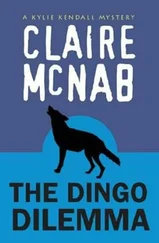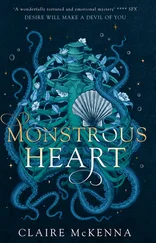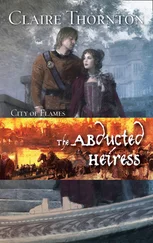Wanato nodded, but he was doubtful. He didn’t know if the world would ever be safe for Zhen again; it had never been safe for Wayãpi to begin with.
According to the Grandfather People, they were forever fleeing. To escape epidemics, mass slaughter, slavers, and missionaries, Wayãpi migrated north along great rivers and split off like its headwaters. Some families, like the one headed by Wanato’s father’s father’s father, followed the Jari River’s tributaries deep into forests that became the Brazilian state of Amapá. Other Wayãpi continued north as far as the Oyapock River on the border of what became French Guiana. Most of these Other Wayãpi settled where the Camopi River joined the larger current, but there were also rumors of other tribes, secret tribes that hid themselves away from danger.
As Wanato continued south with Ned, Zhen, and Dewei following in his well-placed footsteps, he began to worry. Would the Other Wayãpi of French Guiana remember him? Would they accept the three foreigners in his care, or would they resort to violence? Wanato wouldn’t blame the villagers for defending themselves against a perceived threat. Contact with foreign invaders usually ended in death and loss—but not always.
Wanato’s great-grandmothers were young girls when a scientific expedition reached their village. Those were days before contact with gold prospectors and the government. The event was a landmark because it was guided by a curiosity that kept greed and massacre at bay. The foreigners didn’t spread disease and stole nothing from the village. Instead, the strange men—exhausted and probably ill with malaria—presented colorful glass beads with tired smiles. In return, the Wayãpi gave two headdresses with bright macaw and toucan feathers and several arrows. The bond they made that day was brief but unbroken.
The foreigners wished to continue down the Jari River in their canoes. Many Wayãpi archers watched them embark with their arrows notched. The foreigners waved in parting but kept their rifles in reach. No one was a fool, but neither did they want to fire the first shot and kill something that sparked wonder. They chose to watch and wait. And so, behind the fear and distrust of every new encounter with non-Wayãpi, there could also be a small hope that wonder would stay the arrows of warriors and win out.
When Wanato heard a rush of water, he jogged ahead to find a river, but it was not the Oyapock. Ned caught up to him and hollered with joy. The four of them filled their canteens and dropped in water purification tablets. Wanato left the others to rest on the bank as he scouted the area. Maybe they still had another day of hard hiking to reach the Oyapock, but maybe not? Was this the Eureupousine River? Wanato had never seen it, but he knew the river was close.
Vegetation grew thick and scratched at Wanato’s skin. He stepped into a small clearing and saw a tree with a thick thatch of woven palm leaves obscuring its branches. Wanato realized he was staring at a hunter’s hideout at the same instant a Wayãpi man leaned into view with a bow stretched taut and an arrow aimed at his heart. Wanato stopped in shock and marveled at the real Wayãpi bow and an arrow tipped with bloodred macaw feathers. The man’s loincloth was made from rough cotton twine and dyed with urucu .
The tribes that kept themselves secret, he thought. They hid deep in the forest and remembered how to carve and string a bow like the Grandfather People.
Wanato knew the warrior recognized him as both Wayãpi and an invader. The warrior would spend only a few seconds on a decision. He could release his arrow and kill the invader, defending his people and their lives in the forest. Or he could choose wonder and try to create a human bond that crossed their divide.
Wanato smiled and laughed with joy, nearly falling over backward as he reveled in the few seconds of time when both of those perfect possibilities could exist together.
The Second Dark Ages North Cascades National Park, Washington
FOR THE THIRD time that day, Captain Weber fell and lost his sight. The Cascade Mountains went black with fuzzy, unresolved points of lights.
This is it , he thought. This is where I fall and don’t get up.
Weber was dying of starvation. The lands surrounding Tacoma’s suburbs had been stripped of all vegetation, as if consumed by plagues of locusts rather than starving humans trying to digest grass and leaves. Weber lived on rations from Healy until he escaped the city and found freshwater lakes. He had kept several lures and line from his heirloom tackle box before giving it away, and Weber was a skilled fisherman, but he hadn’t made a catch in days. He knew that many of the survivors were cannibals by necessity, but he couldn’t bring himself to cut flesh from human bodies. One could lose a sense of meaning, religion, ideology, love, and hope but still cling to a sense of self, even if it was formed on those lost things.
This is how the stranger found Weber: collapsed next to his duffel bag with a dazed expression. Delirium was common to those living and dying in what came to be known as the Second Dark Ages.
“Coast Guard, right?”
The stranger’s voice came from twenty yards away. Weber turned and readied his wasted body for a fight he would lose. The stranger held a semiautomatic rifle and wore a kind of woodland camo that wasn’t military-issued.
“My father was in the Coast Guard,” the stranger said, pointing at Weber’s filthy working uniform.
Lightweight binoculars hung from the man’s neck. He must have read the white stitching on Weber’s chest that spelled out “COAST GUARD” as he tracked him through the forest.
“Junior lieutenant. He was always grateful to the Coast Guard for keeping him out of Vietnam. Ah, sorry. Probably pisses you off to hear things like that. Meant no disrespect.”
Weber waited—to be shot, to be surrounded by an ambush, to have his duffel bag stolen… The stranger made several cautious steps on soft mud. He was stocky and wore a belt but didn’t need to. How could he have so much meat and fat on his bones? How?
“Par—”
Weber cleared his throat and tried to speak again. It had been weeks since he heard his own voice whisper a hymn.
“Pardon me, sir. But do you know where I can get food? I’m too weak to walk.”
The stranger nodded, like he could see as much. A gloved hand rested on his gun.
“Where you headed?”
“To find my family,” Weber said. “They left the Seattle suburbs for the parks. I was at sea when all of this…” He was too exhausted to elaborate. “Happened.”
“Being on that ship probably saved your bacon. At least in the beginning,” the stranger said. “Few could have made it this long on their own.”
His hooded eyes squinted.
“I can see that that uniform was made for a man of your height, but if you’re coming with me, I still gotta check. Wait here.”
The stranger left Weber shivering in the mud. It was pointless for him to crawl into hiding. To find his family, Weber had to live. To live, he needed food. And if he needed food, he needed this stranger with the ample waist. A cold rain fell as he waited and prayed. He had lost track of the days, but it had to be early autumn judging from the new snowpack on the mountains.
Weber heard an engine above the patter of rain and saw a truck emerge with large off-road tires. It moved slowly up the incline, slaloming pine trees. The stranger parked and hopped out of the driver’s side. His right hand still steadied his gun, but his left held a coil of nylon rope that he threw in a sloppy underhand.
“Tie me a bowline knot.”
Читать дальше












